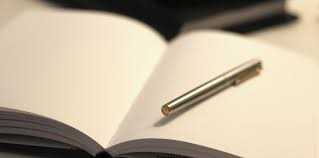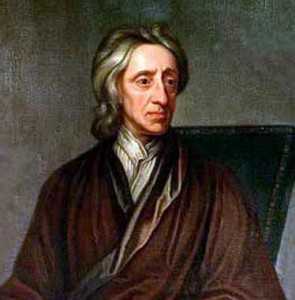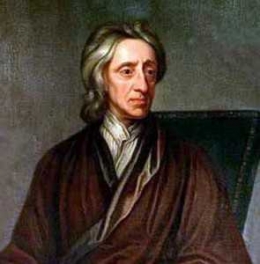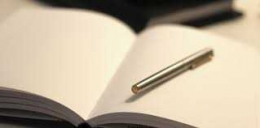Have you ever seen a mother trying so hard to teach her toddler about things like how to walk, how to sit, how to use a spoon, even the simplest yet always in repeat until they can; to say a word "Mummy" or "Daddy"? And have you ever thought about, "Why these babies come to this world and knows nothing about everything?". If you do, then I can answer those curiosity with Tabula Rasa.
Tabula Rasa? What is that? A food? Well, no. Tabula Rasa means "clean state" in Latin. In epistemology, Tabula Rasa is a supposed condition that attributed to the human mind before ideas have been imprinted on it by the reaction of the senses to the external world of objects . Got it now?
Then, where did this term come from? Well, there were so many great philosophers talking about this Tabula Rasa, such as Aristotle in De Anima, Agamben, even Sigmund Freud. But the Tabula Rasa that the world knows now came from John Locke, a philosopher from Empiricism. Ssstt... FYI, Empiricism is the philosophy of knowledge by observation -- or you can say an idea about how we know things .Shall we continue?
Back again to Tabula Rasa by John Locke. Locke talked about Tabula Rasa on his most important work, Essay Concerning Human Understanding (1690). Let me make this simple for you. On that work, Locke said that when a child is born, the mind is blank just like a white paper. Yes. Blank as a white paper. These babies that we are talking about -- according to John Locke and his smart friends back then -- said that they don't begin with determinate, explicit knowledge. BUT, that such knowledge is formed through the combination of sensory experiences(Duschinsky, 2012:515). Then, who formed that knowledge? Society? Parents?
Empiricism said knowledge comes from observation. It must be experienced through our senses that will drives us into an idea; how do you now that chilli is spicy when you never taste one in your whole life? What does 'spicy' even mean? See? This simple idea will never come before we experience it in the first hand.

Those ideas formed and imprinted through our society. For the newly-born baby, it comes from his or her parents as the very first educator. So, what idea that we know now is actually what we learned after we come to this world, not before.
The roles of educators is very important on forming a child's mind. Wrong educators, wrong generation. So, the strength comes from the educators themselves. From Tabula Rasa we know that a child's mind is like a white, empty paper and they are ready to be filled by colors, stories, and many other experiences.

Though the role of educators is important, still this is our paper that we are talking about. This is our state of mind. Sometimes, the educators think that what they teach us is the best for us. But they don't see it from our point of view. Sometimes, we just want to learns things by our own. Yes, we need our parents or teachers or whoever can guide us to stay in the right track. But again, we are the only one that knows what is the best for us.









